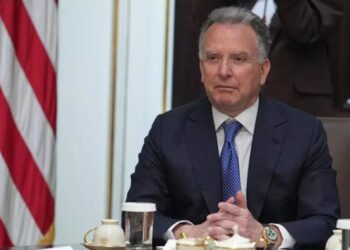Read Part 1.
Read Part 2.
When Russia invaded Ukraine for the second time in 2022, Moscow also miscalculated on China’s approach. Beijing supported the idea of the indivisibility of European security, arguing that Russia’s security concerns were legitimate, but, overall, China remained impartial. It avoided (at least initially and in the mid-term) siding with Moscow through more concrete measures. Reasons vary, but several of them stand out most for our discussion. Russia’s campaign shattered one of China’s most cherished principles: Non-interference in another country’s domestic affairs. Beijing therefore needs to reconcile this core “Westphalian principle” with its close ties to Russia.
China also saw that Russia’s adventurism strengthened rather than weakened the collective West. With a stronger and more united attitude on Russia, a revived West may also take a more confrontational approach toward China. More crucially, this comes in the wake of China’s falling prestige in Eastern Europe, as well as NATO and the EU openly seeing China as a concrete geopolitical threat.
Ultimately, Moscow’s bullying of Ukraine placed Beijing in an uncomfortable spot. Generally, Beijing does not want Russia to lose because that would boost the collective West and perhaps even reverse the process of an illiberal rise globally. Beijing is also concerned about Russia’s adventurism escalating into a larger global conflict, which China would be unable to avoid due to the possible security and economic consequences. In light of these factors, a long-term standoff between Russia and the West that does not devolve into a “hot war” is most advantageous to China, giving it time to adjust to the new geopolitical realities while the US concentrates on places other than the Indo-Pacific.
But perhaps the biggest failure was the expectation of the West to fail to mount a concerted effort against Russia. Divisions within the trans-Atlantic community were seen as too fundamental, while Hungary and others were less pliable to common European interests. Moreover, the EU was seen by many in Russia as a defunct organization, an attitude seen well before 2022 when the Kremlin openly denigrated Brussels and did not see it fit for grand geopolitical bargains.
The reality proved totally different in the first months after the invasion. The liberal system showed it can sustain itself and mount a definitive counter-attack against the perpetrators. Russia was sanctioned with wide-ranging measures, which, if not immediately then in the longer run, were planned to cripple Russian economy.
Russian politicians and especially the Kremlin-linked analysts were at pains to explain what went wrong when the war deemed “operation” failed and the “decadent West” mustered resources to help Ukraine.
But the collective West should not think that the longevity of the liberal order is guaranteed and that the authoritarian menace will subside. Minding the limits of the liberal order and understanding the level of necessary adjustment, i.e. what world’s major states are ready to sacrifice and contribute to (re)creating the order, is a key variable to picturing the emerging future world order with the liberal component playing an integral part in it.
In a way, it could be argued that now is an opportune time for liberalism to reconsider some of the aspects of its global endeavor. First, the West is still powerful, and reforming would not be as much as forceful imposition upon itself, but rather a timely adaptation by the stronger to unfolding changes. Delay or purposeful unwillingness for the change could bring down the entire edifice of the order and undermine some critical aspects of the liberal idea itself.
Another motivator behind the change/adaptation could be the nature of the external challenge liberalism presently faces. New orders are created and reshaped by dominant actors when a major threat to their position arises externally. The rising illiberal threat could cause a major reshuffling in the liberal idea to better confront the challenge. Related to illiberalism is China, which possesses an all-encompassing power to contest the US and its allies to invite them to re-invent the liberal system. Surely, adjusting solely to China and illiberalism would not solve all troubles, as internal remaking is also necessary because the challenge to the order emanates from internal forces too.
Indeed the challenge in the form of China could serve as a necessary unifier of liberal democracies, a motivation lacking since the end of the Cold War and the global communist movement. Global terrorism was a consolidator behind America’s and its allies’ efforts in the 2000s, but the threat was not as long-lasting and overarching to serve as a necessary glue for the Western alliances. In contrast, the emergence of China could actually be a necessary motivator for the US and its allies to act together in the face of a rising systemic challenge. China could dissipate worries which accompanied the US’ unipolar position. China’s and Russia’s models of governance could make the minds in the West, intent on universalist drive of liberalism, take a sober view, and curtail global ambitions. After a near relentless liberal march in the 1990s–2000s, the illiberal pushback could help the Western powers sit back, solidify their gains, and produce more effective foreign policy.
Read Part 4.
Analysis by Emil Avdaliani
Emil Avdaliani is a professor at European University and the Director of Middle East Studies at the Georgian think-tank, Geocase.














